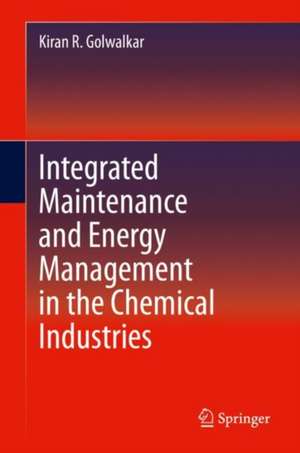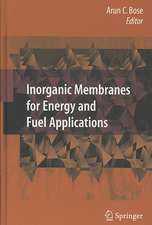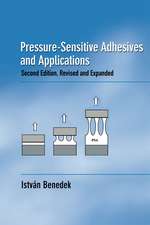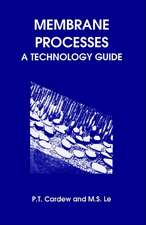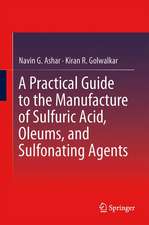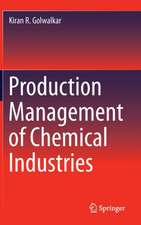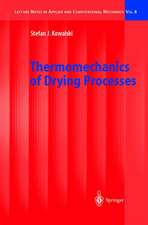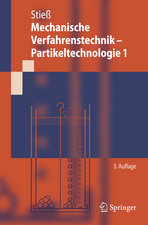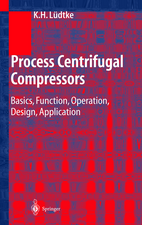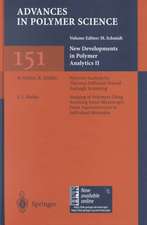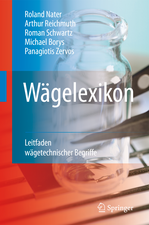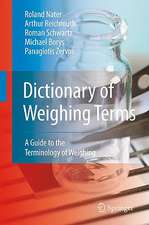Integrated Maintenance and Energy Management in the Chemical Industries
Autor Kiran R. Golwalkaren Limba Engleză Hardback – 3 dec 2019
| Toate formatele și edițiile | Preț | Express |
|---|---|---|
| Paperback (1) | 368.24 lei 38-44 zile | |
| Springer International Publishing – 3 dec 2020 | 368.24 lei 38-44 zile | |
| Hardback (1) | 385.37 lei 38-44 zile | |
| Springer International Publishing – 3 dec 2019 | 385.37 lei 38-44 zile |
Preț: 385.37 lei
Nou
Puncte Express: 578
Preț estimativ în valută:
73.75€ • 80.08$ • 61.95£
73.75€ • 80.08$ • 61.95£
Carte tipărită la comandă
Livrare economică 19-25 aprilie
Preluare comenzi: 021 569.72.76
Specificații
ISBN-13: 9783030325251
ISBN-10: 3030325253
Pagini: 365
Ilustrații: XXVI, 365 p. 40 illus., 15 illus. in color.
Dimensiuni: 155 x 235 mm
Ediția:1st ed. 2019
Editura: Springer International Publishing
Colecția Springer
Locul publicării:Cham, Switzerland
ISBN-10: 3030325253
Pagini: 365
Ilustrații: XXVI, 365 p. 40 illus., 15 illus. in color.
Dimensiuni: 155 x 235 mm
Ediția:1st ed. 2019
Editura: Springer International Publishing
Colecția Springer
Locul publicării:Cham, Switzerland
Cuprins
Introduction to some common chemical industries.- Aims of Integrated Maintenance:.- Monitoring the Process plant for Maintenance work.- Planning for Maintenance work.- Maintenance of Process Units for safe and efficient production.- Maintenance of Common Machinery, Utility items and other plant facilities .- Making Provision for in-house Maintenance.- Testing and restart of units after maintenance activities.- Statutory Compliances for storages and maintenance facilities.- Appendices.- Management Approach to increasing energy efficiency.- Management Strategy.- Methods for Minimising consumption of energy.- Retaining thermal energy.- Sources for energy recovery.- Safety in Energy recovery.- Appropriate Case studies from chemical plants.
Notă biografică
Kiran R. Golwalkar - a consulting chemical engineer, based primarily in India, with decades of professional experience in the design, erection, planning, and operation of various facilities across the chemical industries.
Textul de pe ultima copertă
This book provides guidelines to ensure a safe and smooth running chemical production plant. It presents in detail such important considerations as selection of proper technology with efficient machinery (for a new plant) or expansion / diversification of existing plants for manufacture of more products for safe and pollution-free operation.This book also provides guidelines for improved plant layout, and selection of raw materials to reduce pre-processing costs prior to feeding to process units. The book further examines procuring better inputs (such as catalysts, filter cloths, tower internals etc) required for smooth plant operation and better product quality for client satisfaction, enhanced process control through suitable instrumentation, and preventive maintenance.Typical conflicts arising in production units due to different priorities among sales departments, purchasing departments, production engineers, and maintenance engineers are addressed. The book also suggests methods to reduce the loss of energy during start up and shutdowns, increase equipment life, and prevent environmental pollution.Case studies are included in appropriate chapters.
- Maximizes reader understanding of procuring better materials and spares as inputs for smooth plant operation and better product quality
- Illustrates preventive maintenance practices through condition-monitoring of process units and machinery for safe and smooth production runs
- Discusses best practices for reducing energy consumption, improving energy recovery, safe disposal of dangerous wastes, and reducing the cost of operations
Caracteristici
Maximizes reader understanding of procuring better materials and spares as inputs for smooth plant operation and better product quality Illustrates preventive maintenance practices through condition-monitoring of process units and machinery for safe and smooth production runs Discusses best practices for reducing energy consumption, improving energy recovery, safe disposal of dangerous wastes, and reducing the cost of operations
